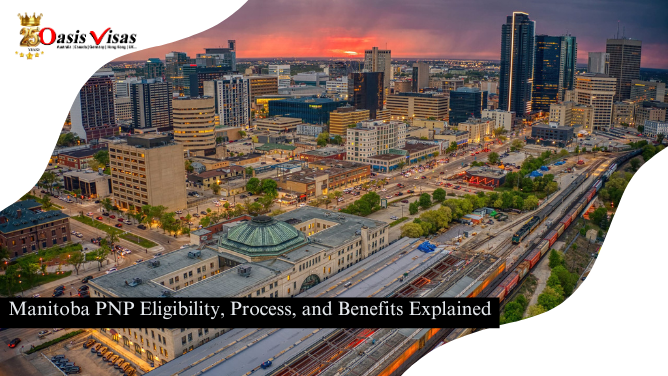
Among the many factors that influence your CRS score for Canada PR, education is one of the most important. People from different countries dream of settling in Canada because of its high standard of living, excellent healthcare, and abundant career opportunities. If you’re planning to immigrate to Canada, you must be familiar with the Comprehensive Ranking System (CRS) score. The CRS score is a key part of Canada’s Express Entry system, which determines your eligibility for permanent residency.
Your education level plays a significant role in shaping your CRS score, as it directly affects your ability to secure a good job and integrate into Canadian society. In this blog, we will explore how your education level impacts your CRS score for Canada PR and why it’s crucial to focus on enhancing this aspect when applying for immigration.
What is the CRS Score for Canada PR?
The Comprehensive Ranking System (CRS) is a points-based system used by the Canadian government to assess and rank candidates in the Express Entry pool. The CRS score for Canada PR is calculated based on several factors, including age, language proficiency, work experience, education level, and more.
Each of these factors contributes to your overall CRS score, and candidates with higher scores are more likely to receive an Invitation to Apply (ITA) for permanent residency. Among these factors, education plays a major role in boosting your CRS score.
The Importance of Education in the CRS Score for Canada PR
Education is a key factor that can significantly influence your CRS score for PR. The Canadian government values skilled and educated immigrants who can contribute to the country’s economy. As a result, higher education levels are awarded more points in the CRS system.
Here’s how different education levels can impact your CRS score:
- High School Diploma: If you only have a high school diploma, your CRS score will be lower compared to someone with a higher degree. While you can still apply for Canada PR, your chances of receiving an ITA may decrease due to the lower points allocated for this education level.
- Post-Secondary Education: Completing a post-secondary diploma or degree can significantly boost your CRS score for Canada PR. This includes certificates, diplomas, and bachelor’s degrees. These qualifications demonstrate that you have specialized knowledge and skills, which are valuable in the Canadian job market.
- Master’s Degree or Equivalent: A master’s degree or equivalent qualification can earn you even more points in the CRS system. This level of education shows that you have advanced expertise in your field, making you a strong candidate for Canada PR.
- Doctoral Degree (PhD): A doctoral degree is the highest level of education and is awarded the maximum points in the CRS score for Canada PR. Candidates with a PhD are highly valued as they bring exceptional knowledge and skills to the Canadian workforce.
How to Increase Your CRS Score Through Education
If your education level is not high enough to earn a competitive CRS score for PR, there are ways to improve it. Here are some tips to increase your CRS score through education:
- Complete a Higher Degree: Consider pursuing a higher degree, such as a master’s or PhD, to increase your CRS score. This will not only boost your points but also enhance your career prospects in Canada.
- Get Your Education Assessed: Ensure that your foreign education credentials are recognized in Canada by obtaining an Educational Credential Assessment (ECA). An ECA verifies that your degree or diploma is equivalent to a Canadian qualification, which is essential for earning points in the CRS system.
- Focus on Specialized Programs: Enroll in programs or certifications that are in demand in Canada. For example, completing a course in healthcare, IT, or engineering can enhance your employability and add value to your CRS score for PR.
- Take Advantage of Provincial Nominee Programs (PNPs): Some provinces in Canada offer additional points for specific education levels under their Provincial Nominee Programs. Research PNPs that align with your educational background to increase your chances of receiving an ITA.
The Role of Language and Education Combined
While education plays a crucial role in determining your CRS score for Canada PR, it’s important to note that other factors, such as language proficiency, can amplify the impact of your education. For example, if you have a high level of education and score well in language tests like IELTS or CELPIP, you can earn additional points for the combination of these factors. This is known as the “transferable skills” category in the CRS system.
Why Education Matters for Your Canada PR Journey
Having a higher education level not only increases your CRS score for Canada PR but also improves your overall prospects in Canada. Educated immigrants are more likely to find better job opportunities, adapt to the Canadian work environment, and contribute to the economy. Moreover, education is a long-term investment that can benefit you and your family for years to come.
Your education level is a vital factor that directly impacts your CRS score for PR. Whether you’re just starting your journey or looking to improve your chances of receiving an ITA, focusing on your education can make a significant difference. By completing higher degrees, obtaining an educational credential assessment, and exploring programs that align with Canada’s labor market needs, you can enhance your CRS score and move closer to achieving your dream of permanent residency in Canada.
Remember, the higher your CRS score for Canada PR, the better your chances of being invited to apply. Start planning today and take the necessary steps to boost your education level and secure a bright future in Canada.











